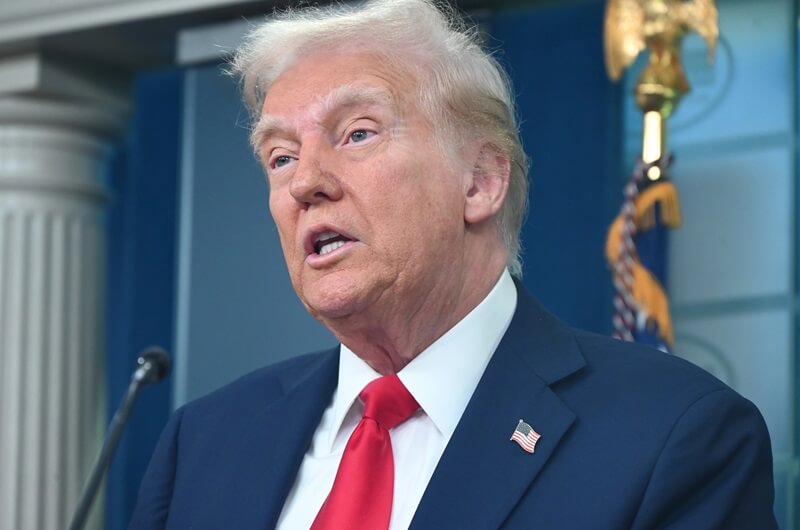TL;DR:
- The Trump immigration Gold Card proposes U.S. permanent residency for a $5 million payment, offering a fast-track path with exclusive perks.
- Unlike the EB-5 and EB-1C Green Cards, the Gold Card does not require job creation or a specific employment history.
- The program’s legality and implementation remain uncertain, as no official application process has been established.
- Existing options, such as the EB-5 and EB-1C, offer structured and lawful pathways for investors and executives seeking U.S. residency.
In February 2025, President Donald Trump introduced the concept of a “Gold Card” Visa—a $5 million pathway to U.S. permanent residency aimed at wealthy foreign nationals. This initiative is positioned as a replacement for the EB-5 Immigrant Investor Program, which requires investments in U.S. businesses that create jobs. The Trump immigration Gold Card, however, proposes a direct payment to the U.S. government without stipulations for job creation or business involvement.
Marketed with the allure of “privileges-plus,” the proposal hints at VIP treatment for cardholders. While not yet codified into law, the idea has generated intense interest—and controversy—among legal advocates.
Gold Card Visa: A Premium Path To U.S. Residency
The proposed Gold Card Visa represents a bold new concept in immigration policy. The idea is to attract successful individuals who can inject capital into the U.S. economy without adding administrative burden or waiting years in backlog queues.
The Gold Card immigration pathway is designed to be simple and swift, making it particularly appealing to global high-net-worth individuals. While critics argue this undermines the integrity of the immigration system, supporters claim it’s an innovative way to raise federal revenue without raising taxes.
Key features include:
- High Entry Cost: A $5 million non-refundable payment would grant U.S. permanent residency.
- No Investment Requirements: Unlike the EB-5 program, applicants don’t need to invest in a business or create jobs.
- Exclusive Perks: Trump hinted at VIP-style benefits such as fast-track Customs clearance or premium airport services.
- Tax Implications: Holders may be taxed only on their U.S.-sourced income.
This model redefines immigration as a luxury commodity, marketing U.S. residency as a high-status asset rather than a mutual commitment between immigrant and nation. The Gold Card Visa offers a dramatically different route—one where wealth replaces traditional eligibility criteria.
Gold Card Application: Who Might Qualify & How It Might Work
Although the Gold Card proposal has attracted global attention, it remains entirely speculative with no official application process or regulatory guidance in place. At present, no U.S. agency has issued forms, criteria, or procedural instructions for what a Gold Card application would entail.
Prospective applicants would likely need to prove a legal source of funds for the $5 million payment, pass national security vetting, and undergo a background check. Unlike EB-5 or EB-1C, there would be no job creation, employment history, or investment risk involved. The payment offers no financial return, except for a Green Card and implied lifestyle perks.
Trump has promoted this visa as offering “privileges-plus,” a phrase that remains undefined but is widely interpreted to suggest elite benefits. They could include expedited Customs processing, access to capital, or domestic mobility advantages.
However, none of these have been confirmed in writing. Some immigration attorneys stress that until regulations are formalized, applying for Trump’s Gold Card remains purely hypothetical.
Trump Gold Card vs. EB-5 & EB-1C Green Card Programs
For individuals seeking U.S. permanent residency through financial means, the proposed immigration Gold Card may seem like a groundbreaking option. However, it’s important to compare this untested concept with existing, legally defined immigration pathways that already serve investors and multinational executives.
Two such options are the EB-5 Immigrant Investor Program and the EB-1C Green Card for multinational managers and executives. Both offer a structured, rule-based approach grounded in long-standing U.S. immigration law.
EB-5 Immigrant Investor Program
The EB-5 program requires foreign investors to:
- Invest $1.8 million in a U.S. business, or $900,000 in a Targeted Employment Area.
- Create at least 10 full-time jobs for U.S. workers.
- Maintain the investment for a specified period of time.
Successful applicants receive conditional permanent residency, which may become permanent after two years of compliance.
EB-1C Multinational Executive Or Manager
This visa is for executives who:
- Have worked abroad for at least one of the past three years for a qualifying company.
- Are being transferred to a U.S. branch, affiliate, or subsidiary.
- Will serve in an executive or managerial role in the U.S.
This route offers direct access to permanent residency without requiring a labor certification.
Comparative Overview
| Feature | Trump Gold Card | EB-5 Program | EB-1C Visa |
| Investment Requirement | $5 million | $900K–$1.8M | None |
| Job Creation Requirement | No | Yes | No |
| Business Involvement | No | Yes | Yes |
| Residency Type | Permanent | Conditional | Permanent |
| Application Process | Undefined | Established | Established |
Unlike the Gold Card model, which lacks clarity and legality, the EB-5 and EB-1C offer pathways that are firmly embedded in U.S. immigration policy. They provide legitimate, time-tested opportunities for qualified applicants.
Legal & Ethical Concerns With The Trump Immigration Gold Card Model
The Trump Gold Card Visa proposal raises a host of legal and ethical concerns that go beyond immigration logistics. First, it’s unclear whether such a program could be implemented without Congressional approval. Many legal scholars point out that significant changes to the immigration structure typically require legislative action.
Beyond legality, the ethical implications are striking. Critics argue that the plan commodifies U.S. residency, reducing it to a product for the ultra-wealthy while many families face long waits and complex requirements. It also opens the door to potential abuse, including money laundering or influence-buying, especially if vetting is insufficient.
The Gold Card proposal raises several issues:
- Legality: Implementing such a program may require Congressional approval, as it significantly alters existing immigration pathways.
- Security: Without stringent vetting, there’s potential for misuse by individuals seeking to bypass standard immigration scrutiny.
- Ethics: Selling residency could be perceived as commodifying citizenship, leading to debates about fairness and national values.
Other nations that implemented similar “gold visa” schemes have rolled them back due to corruption concerns. Without transparent safeguards, the Trump Gold Card immigration model may invite the same scrutiny.
Gold Card Trump Immigration In Context Of Current U.S. Policy
The optics of the Gold Card Trump immigration proposal may especially be contentious in today’s polarized climate. It appears to favor the global elite at a time when many low-income immigrants face detention, deportation, or protracted legal battles. This stark contrast risks undermining public trust in a fair immigration system.
Critics argue that welcoming billionaires while barring asylum seekers sends a troubling message about who is deemed “worthy” of entry. The policy could deepen existing inequalities, sparking further debate over merit, money, and American values in immigration policy.
Economic Arguments Behind The Gold Immigration Card
Supporters of the gold immigration card argue it presents a fiscally responsible alternative to raising taxes or increasing government borrowing. The Trump administration claims the program could generate billions—or even trillions—of dollars to help reduce the national debt. Advocates frame it as a win-win: the U.S. gains revenue, and immigrants receive status without burdening public services.
However, economists and immigration attorneys remain skeptical. They question the projected scale of participation and note that, unlike the EB-5, the Gold Card involves no job creation or economic stimulation beyond the initial payment.
The Road Ahead For The Trump Gold Immigration Card
The Trump gold immigration card remains a proposal, not a policy. While it has generated widespread media attention and legal speculation, no official announcement from USCIS or the Department of Homeland Security has confirmed implementation. As a result, both prospective applicants and immigration attorneys are left with more questions than answers.
Moving forward, several key factors will determine whether this visa becomes a reality:
- Legislative Hurdles: Congress may need to authorize a visa category with such sweeping changes.
- Regulatory Framework: If enacted, detailed rules would be required to define application criteria, eligibility, and benefits.
- Political Will: The future of this proposal will likely hinge on the 2025–2026 political landscape.
Until then, the Gold Card immigration program should be treated as a theoretical concept rather than a viable pathway.
What Investors Should Do Now
Given the uncertainties surrounding the Gold Card, investors seeking U.S. residency should consider established programs:
- EB-5 Program: For those willing to invest in U.S. businesses and contribute to job creation.
- EB-1C Visa: For multinational executives or managers transferring to U.S. operations.
These pathways offer structured, lawful options with clear requirements and processes.
A New Debate, But Old Solutions Still Work
The Trump immigration Gold Card introduces a novel, albeit controversial, approach to U.S. permanent residency. While it promises simplicity and exclusivity, the lack of clarity and potential legal hurdles make it a speculative option at best.
In contrast, existing programs like the EB-5 and EB-1C provide reliable avenues for qualified individuals to achieve permanent residency. Until more information becomes available, prospective immigrants are advised to pursue these established routes.
Let’s Talk, Book A Free Case Evaluation
If you’re considering your options for U.S. permanent residency through investment or executive transfer, our team is here to guide you. Schedule a free case evaluation today to explore the best pathway tailored to your circumstances.
FAQs: Trump’s Gold Card Visa Program
What Is The Trump Immigration Gold Card?
The Gold Card is a proposed \$5 million, pay‑to‑stay immigration track that would grant wealthy foreign nationals permanent U.S. residency with “Green Card privileges plus.” It is pitched as a faster, premium alternative to existing investor visas, and the administration says revenues would help pay down the national debt.
How Much Does The Gold Visa Cost?
The headline price is US \$5 million per principal applicant. Commerce Secretary Howard Lutnick has publicly tied that figure to a goal of raising hundreds of billions—and eventually trillions—for the Treasury.
Is Trump’s Gold Card Visa Meant To Replace The EB‑5 Investor Visa?
Yes. Officials have framed the program as a replacement for EB‑5, which currently requires a far smaller investment ($900K–$1.8M) tied to job‑creation projects. Unlike EB‑5, the Gold Card would *not* require applicants to invest in or create U.S. jobs.
What Benefits Does Trump Card Offer Over A Traditional Green Card?
Trump has promised “Green Card privileges plus” including:
- Immediate permanent residency (no conditional period)
- A streamlined path to citizenship
- Possible exemption from tax on foreign‑source income (still unconfirmed)
Exact benefits remain provisional until enabling legislation or regulations appear.
Who Can Apply To Obtain The Trump 5 Million Gold Card?
Does Trump’s Gold Card Exempt Holders From U.S. Taxes On Foreign Income?
Conflicting signals:
- February remarks and some explainer sites said the card would waive U.S. tax on non‑U.S. income.
- More recent White House talking points insist recipients “will have to pay tax in our country.”
Until legislation is drafted, assume normal U.S. tax rules apply and consult a cross‑border tax adviser.
How Do I Start The Gold Card Application?
For now you cannot file a formal application. The government site – TrumpCard.gov only lets prospective applicants join a wait‑list by submitting name, region, email, and whether they are applying as an individual or a business. No payments or documents are collected yet.
Can My Spouse & Children Qualify Under My Gold Visa Application?
How Long The Gold Card Visa Process Takes & When Could I Get Citizenship?
Is There A Limit On The Number Of Trump Cards That Will Be Issued?
Can Employers Buy Gold Cards For Key Talent?
What Happens To My $5 Million If I’m Denied Trump’s Gold Card?
Does Trump Have Legal Authority To Create The Gold Visa Without Congress?
Why Is Trump’s Immigration Gold Card Program So Controversial?
Key criticisms include:
- Legality & separation‑of‑powers concerns.
- Equity questions – selling residency only to the ultra‑wealthy.
- Money‑laundering & national‑security risk familiar from “golden visa” scandals abroad.
What Should Gold Visa Applicants Do As Trump Card Details Wait?
- Join the official wait‑list to receive updates (no fee required).
- Track Congressional activity—without a bill, the visa cannot go live.
- Consult qualified U.S. immigration & tax counsel to model alternative routes (e.g., EB‑5) and to be ready if/when formal rules emerge.
- Monitor reputable news outlets for policy shifts rather than relying on social‑media rumors.
The bottom line is that the Trump immigration Gold Card is generating enormous buzz. 70,000 people have already queued for information, but it remains a proposal in search of statutory authority. Treat any timelines or tax promises as provisional until Congress acts.

 Thank you for contacting us. Please complete this form and one of our team members will be in touch with you soon.
Thank you for contacting us. Please complete this form and one of our team members will be in touch with you soon.
